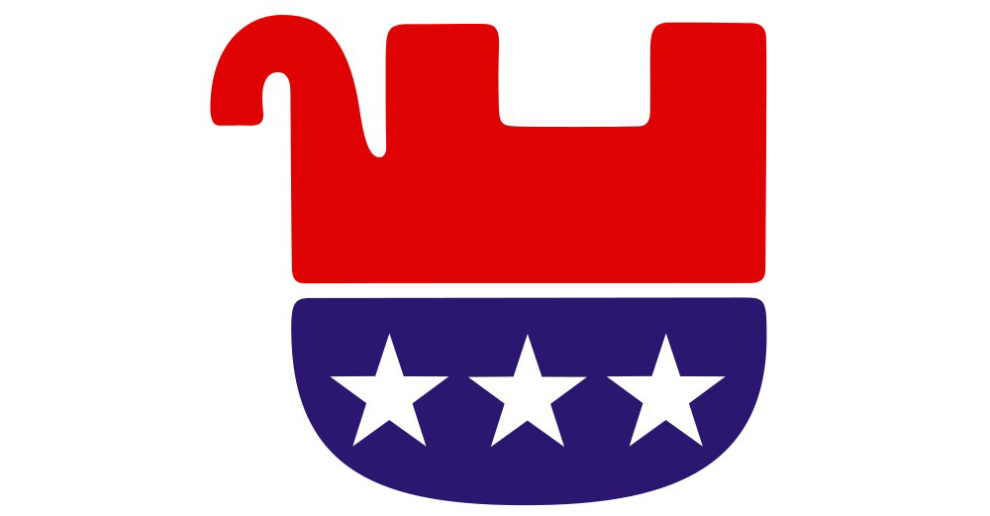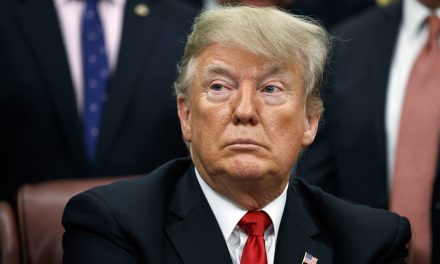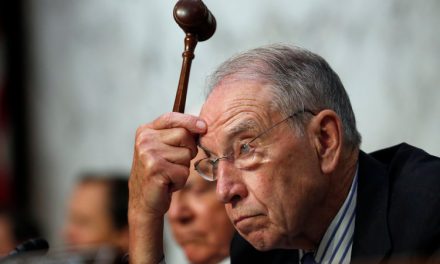I’m going to begin here with the caveat that we should never put too much stock in the cross tabs of a survey with 1,346 respondents. The margin of error can be pretty large even if the methodology and sample are solid. But this study from Tufts University gets at something that interests me, and it may have found something of value.
The goal is to measure Donald Trump’s influence as a political endorser. Here’s how the went about it.
To collect our data, we conducted an experiment on a nationally representative online survey of 1,346 American adults fielded just before the 2022 midterm elections. All respondents saw a preface about a Republican nominee for a Congressional seat in their state named Terry Mitchell. Respondents either viewed “conventional” Republican viewpoints (lowering taxes, limiting government’s role in healthcare, and opposing citizenship for undocumented immigrants) or “unconventional” Republican viewpoints (increasing taxes, expanding government’s role in healthcare, and supporting citizenship for undocumented immigrants). Respondents then received one of three Trump endorsement conditions: Trump’s support for Mitchell, Trump’s disapproval of Mitchell, or no mention of Trump.
Now, the headline for the study is that Trump’s endorsement had an overall negative effect in 2022. But, intuitively, I already knew that. What was his effect among just Republican voters? Here is where there’s a result I didn’t anticipate.
For Republican respondents who were told that Trump had endorsed Mitchell, the average favorability rating did not change by a statistically significant amount, shown in the second graph. When Trump told voters not to vote for Mitchell, Republican respondents’ ratings decreased by 7 points. From these results, it is evident that Trump’s “cult of personality” was unable to galvanize support among Republican respondents. However, Trump’s disapproval depressed Mitchell’s favorability ratings, showing that losing the support of Trump can still have a notable impact among Republican voters.
I don’t have a statistical study in hand, but I think we’ve all noticed that Trump has endorsed a lot of candidates who went on to lose. He has padded his success rate by endorsing Republicans in races everyone knew the GOP would win irrespective of his input, but his record isn’t so impressive in strongly contested races. In 2022, this was particularly obvious in the Senate contests.
The Tufts study backs this up. When Trump tells people to vote for a candidate, it doesn’t move the needle with the Republican electorate. But when he tells Republican voters not to support someone, then he has some serious influence.
Now, this result isn’t that robust for a simple reason. Take the example of the 2022 Pennsylvania Senate race where Trump endorsed Mehmet Oz in the primaries over David McCormick. Perhaps Trump’s endorsement of Oz had little influence. But the Tufts study suggests that when he visited Pennsylvania and called McCormick a “liberal, wall street Republican…totally controlled by Mitch McConnell,” it probably hurt McCormick’s chances. The problem is that the study doesn’t examine what happens when Trump attacks “Terry Mitchell’s” opponent.
But the study still provides a potential psychological insight. Perhaps Republicans respond to Trump primarily through his disapproval. Maybe he’s quite effective at putting a target on someone or some thing’s back, but he’s ineffective in rallying people in a positive direction. One possible example of this from his presidency is that he never could produce an infrastructure bill, even though it was the one area where the Democrats were willing to work with him. Republican members of Congress seemed to live in mortal fear of inviting Trump’s wrath but they had no apparent fear of opposing his promise to double Hillary Clinton’s proposed infrastructure spending. If Trump made any serious effort to convince his supporters to pressure Congress, it quite obviously did not work. Yet, he easily convinced a mob of his supporters to attack Congress on January 6, so it’s clear he can move them with a negative message.
I’m less interested in what this says about Trump than what it says about the Republican electorate. They clearly responded to Trump from the moment he arrived on the scene hurling epithets at Jeb Bush, Marco Rubio, Lindsey Graham and Ted Cruz. Nothing riled them up more than his calls to have Hillary Clinton arrested. He fulfilled a latent desire for this kind of ruthless combat. It didn’t even have to be plausible, as with his promise to make Mexico pay for a border wall, as long as it was a full-throated attack on some person or group. In many ways, Trump’s cult-like status was built on gratitude that someone was finally willing to fulfill this need for scapegoating and disrespect. That gratitude quickly turned into loyalty, and a willingness to forgive any shortcoming or misstep.
Some of this sentiment isn’t foreign to Democrats. The left can also grow impatient and call for candidates with more fight and fewer scruples. It’s a natural if not necessarily rational response to the consequences of losing. But it’s hard to imagine the left embracing a candidate, no matter how combative, who is as ideologically out of step with them as Trump was with the Republican Party on several issues, including entitlements, infrastructure spending and free trade. Democrats may sometimes thirst for a champion who will take the gloves off, but not for causes they don’t support.
Perhaps this reflects a weakness in the conservative coalition in general, namely that policies that suit billionaires aren’t actually that popular with the Republican rank-and-file voter. Many people vote Republican despite the party’s economic policies rather than because of them. But if Trump peeled off some traditional Democrats with his more populist economic message, he didn’t rally them to produce the promised results. He held them mostly in place in spite of this, because their primary attraction wasn’t what he could do for them but what he might do to their perceived enemies.
The result is that Trump tore down the old Republican coalition, which was at least good enough for a couple narrow presidential wins and a good amount of congressional control. That old coalition is gone, along with any sense of coherence to Republican ideology. Trumpism and McConnellism are so antagonistic that they can’t form a natural alliance, which is something Speaker of the House Kevin McCarthy is contending with as he finds himself unable to pass even messaging bills through his chamber. The idea that he could cobble together a majority to tackle the debt is ludicrous because his party is too split.
Even with the party largely united around Trump in 2020, it lost badly in the elections, so trying to go forward without Trump’s coalition fully on board is not going to work. Seemingly, the only way to hold the MAGA crowd’s interest without Trump is to replicate his relentless attacks. The party doesn’t agree on an agenda and doesn’t respond to positive messaging anyway, so the only thing that can bind a coalition to together is hostility to common enemies.
In this way, something that started as particular to Trump became something systemic for the GOP as whole. They need his style to survive, even if it has no real substance.







